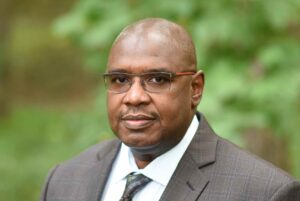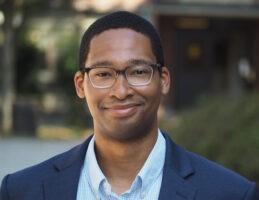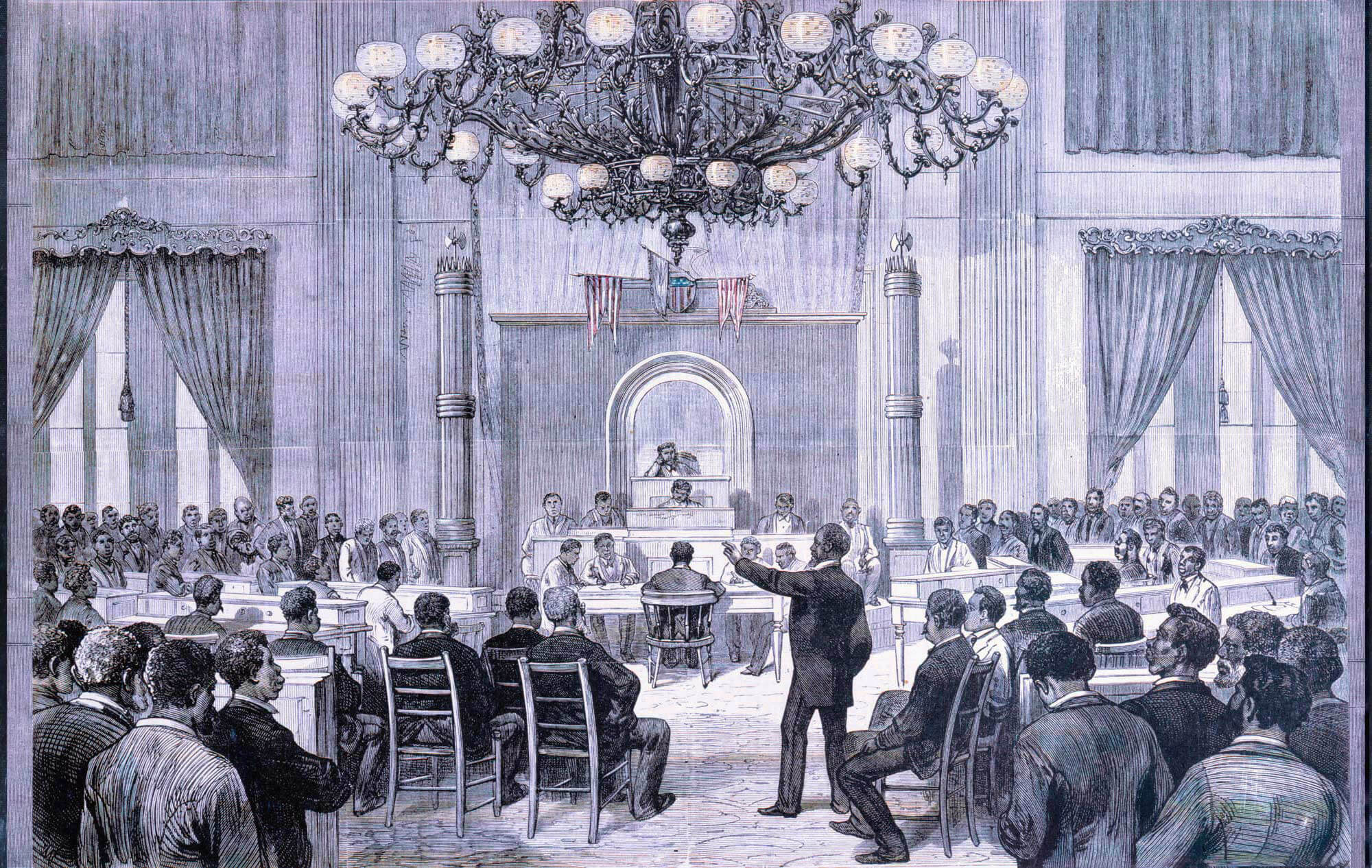The Richards Center Faculty Fellowships offer research support for faculty members whose research aligns with the Center’s scholarly mission. These two-year fellowships include the opportunity to present a work-in-progress and to use the Center’s resources for research and writing time. Fellows participate in workshops and professional development activities, and become active participants in the scholarly life of the Center. In 2023-24, our inaugural fellows are Lucien Holness and Tony Frazier.
 Dr. Tony Frazier is a historian of Modern Europe, with a specialty in eighteenth-century Black British History and the African Diaspora. He conducts research in the areas of enslaved Black British people in the eighteenth-century, African American memory, material culture, comparative slavery, and digital history. Dr. Frazier has taught courses in Early Modern European History, Modern European History, British History, African American history, African Diaspora, United States, and World History. He currently serves on the Council of the American Historical Association (AHA).
Dr. Tony Frazier is a historian of Modern Europe, with a specialty in eighteenth-century Black British History and the African Diaspora. He conducts research in the areas of enslaved Black British people in the eighteenth-century, African American memory, material culture, comparative slavery, and digital history. Dr. Frazier has taught courses in Early Modern European History, Modern European History, British History, African American history, African Diaspora, United States, and World History. He currently serves on the Council of the American Historical Association (AHA).
Dr. Frazier is currently writing his book manuscript tentatively titled Slaves Without Wages: Runaway Black Slaves and Servants in Eighteenth-Century London. This project investigates the meaning of freedom and liberty in English society, particularly as it relates to enslaved Black people, both before and after the 1772 Somerset Case. His research has been funded by the National Humanities Center.
After the completion of the book, Dr. Frazier will continue to work on several interrelated digital history projects: a project that focuses on the origins of Emancipation Days and memory in African American communities after the Civil War; the completion of a digital website about the Amistad revolt; serving as a Co-Pi team member on a digital humanities grant proposal titled “Digital Mapping: The American Colonization Society and African American Emigration to Liberia, 1823-1906.” The proposed will expand current research on African American emigration to Liberia and return to the United States between 1823 and 1906.

Dr. Lucien Holness is a historian of early American and African American History with interests in slavery, abolition, and emancipation. Currently, he is working on a book-length study tentatively titled The Making of a Free State: Free Soil, Free Labor, and Black Freedom in the Borderland of Southwestern Pennsylvania.
The Making of a Free State argues that by investigating how African Americans understood free labor and free soil, we can see what a free state meant to them. In some cases, these ideas became the inspiration for how they imagined the post-emancipation North and South and emigration projects within and outside the United States. The creation of a free state was a process that not only occurred in the legislatures of territories, states, and in the nation’s capital, but on the ground in the streets of cities, towns, and villages, courtrooms, various sites of labor, and other places.
Rather than provide a narrative of free soil and free labor that examines the entire North, The Making of a Free State focuses primarily on southwestern Pennsylvania. The region was one of the first territories opened to westward expansion in the aftermath of the Seven Year’s War and where the place of Africans and people of African descent in society remained uncertain. By shifting the center of antislavery politics and discussions about race from Philadelphia to southwestern Pennsylvania, his manuscript illustrates how the region’s unique political geography influenced the outcome of legislative debates over emancipation, complicated antislavery activists’ efforts to bring about abolition in the North. It also explores how African American politics and political culture varied within northern states which shaped the strategies that black activists employed in their struggle for freedom. Finally, this narrative of the free labor ideology situates African Americans’ voices at the center of these discussions, which are confined to the periphery in prominent studies on free labor.
